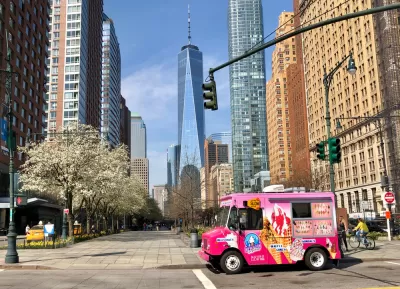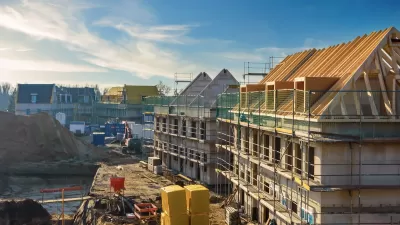From garbage pickers to tamale sellers, workers in the informal economy can account for half the workforce in developing cities. They should be respected as an important constituency.

Street Vendors contribute a vital part of city life, whether they're selling tea from the back of their bikes or carrying a cooler of tamales, they should be treated as an important resource Tanvi Misra argues in a piece for CityLab. "And yet they face numerous barriers to economic, political, and social integration—many of which are set up by the city itself. This is a common state of affairs in the urban centers of developing countries, but it doesn’t have to be," Misra writes.
Cities could do a lot for these vendors, by giving out more permits, and having strict oversite and greater transparency to avoid the corruption that can be part of that process. "Informal workers—like street vendors, waste-pickers who earn money for recycling trash; people who make textiles, garments, shoes, electronics, and other products at home—make up 50 to 80 percent of employment of cities in developing countries," Misra reports.
A World Resource Institute paper suggests three strategies to aid this vital part of cities:
- Increased access to public resources
- Revised laws to include informal workers in decision making
- Greater integration of informal workers into the local government
FULL STORY: Why Cities Should Support, Not Exclude, Street Vendors

Planetizen Federal Action Tracker
A weekly monitor of how Trump’s orders and actions are impacting planners and planning in America.

San Francisco's School District Spent $105M To Build Affordable Housing for Teachers — And That's Just the Beginning
SFUSD joins a growing list of school districts using their land holdings to address housing affordability challenges faced by their own employees.

Can We Please Give Communities the Design They Deserve?
Often an afterthought, graphic design impacts everything from how we navigate a city to how we feel about it. One designer argues: the people deserve better.

Engineers Gave America's Roads an Almost Failing Grade — Why Aren't We Fixing Them?
With over a trillion dollars spent on roads that are still falling apart, advocates propose a new “fix it first” framework.

The European Cities That Love E-Scooters — And Those That Don’t
Where they're working, where they're banned, and where they're just as annoying the tourists that use them.

Map: Where Senate Republicans Want to Sell Your Public Lands
For public land advocates, the Senate Republicans’ proposal to sell millions of acres of public land in the West is “the biggest fight of their careers.”
Urban Design for Planners 1: Software Tools
This six-course series explores essential urban design concepts using open source software and equips planners with the tools they need to participate fully in the urban design process.
Planning for Universal Design
Learn the tools for implementing Universal Design in planning regulations.
Borough of Carlisle
Smith Gee Studio
City of Camden Redevelopment Agency
City of Astoria
Transportation Research & Education Center (TREC) at Portland State University
City of Camden Redevelopment Agency
Municipality of Princeton (NJ)





























